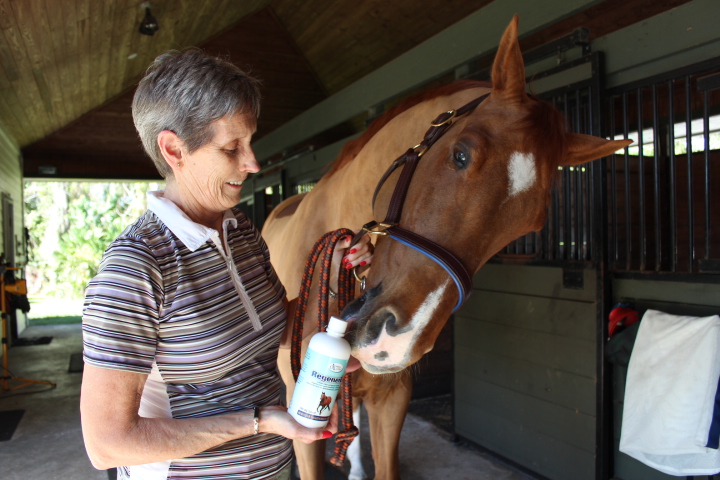Horses are not very verbal. Oh I know that in the movies they are always whinnying and neighing and snorting and nickering but to be honest that is just the sound department filling in so we know they are “horses”. In real life horses are quiet for the most part. The first day of a horse show with horses arriving and getting settled into the horse show stabling then there is a lot of calling between the horses a sort of “Hey! I’m in stall 22 where are you?” and “Fred…where are you? I’m over here!” But when horses are in pain they are silent. We have to follow the signs they give us.
One of the most painful and potentially dangerous situations for a horse is colic. This is an intestinal upset that can be caused by a twisted intestine or a blockage. How do we know the horse is in pain and colicking? They do not whine or whimper. They will try to get down and roll and when they stand up instead of shaking off the dirt they will just paw and get down to roll again. They will bite at their sides. Their respiration rate and heart rate go up. They will not eat. These are the signs and this is the language we must observe and act upon quickly.
With Biasini I am always on the alert for any signs of intestinal discomfort from ulcers. These could be stomach ulcers or hindgut ulcers . Both are common, in the horse population, now that we have altered their lifestyle which was designed to be living outside and moving and eating 24/7. As some of you may already know I had a horse, Tommie, who had persistent ulcers that over time resisted even the gold standard medication. With ulcers he was unable to take any form of pain medication, so when he developed further health issues I had to have him put down. Since then I will go to great lengths to avoid having my horse develop ulcers. I always observe Biasini and see what his “gut feelings” may be.
If Biasini is particularly grumpy when being groomed I will see if he reacts more on the right side near his flank. This to me is an indicator that he may have some hindgut discomfort. Then I will start him on RegenerEQ. This is an Omega Alpha product and I have been using it since I got Biasini three years ago. I give him a course of it and the grumpy-when-groomed-on-the-right disappears. I may do this three or four times a year. 
I also give him Omega Alpha’s Gastra-FX, by syringe, before riding him. Every time I ride! I give him a brush, pick out his feet , put on his leg wraps and then it is time for the Gastra-FX. He looks forward to this as a treat and if I do not give it right after the leg wraps go on he will start pawing! I do this as a preventative. I just do not want another horse with ulcers.

I have written about both of these products before and wanted to do so again as I am just about to start Biasini on the RegenerEQ for another couple of weeks. He was grumpy when groomed yesterday on the right side. I must follow the “sign language” when he communicates his “gut feelings”.

Leave a Reply